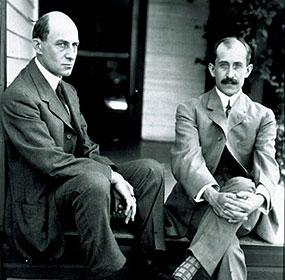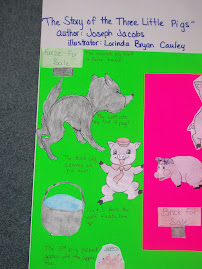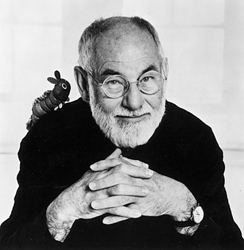Reaction to the websites:
The idea of the Aleutian Islands and how the Aleutians were treated during World War II came as a complete shock to me! I had never heard of the Aleutian people. I did not know that the Japanese made an attack on US soil other than the attack on Pearl Harbor. From the websites I found that on June 7, 1942, Japanese forces invaded the Aleutian Islands and took 42 prisoners of war. In response to the Japanese attack, the US evacuated 881 Aleutian people from nine villages. They were then taken and crammed into transport ships. The Aleutians could only have a single suitcase so they had to decide what was most important for them to take with them. They were transported to Southeast Alaska and were crammed into villages with no electricity, plumbing, or toilets. They remained in these villages for two years. I am shocked that the US would do this to their own American people. I thought it was the Japanese people who took all the Aleutian people and moved them but instead it was the Americans. The Americans burnt the Aleutian churches and homes to make sure that it didn't fall into Japanese hands. It sort of makes me upset that this event is not taught in history class today. All students learn about today is the attack on Pearl Harbor but no one ever talks about the Aleutian people.
Reaction to the book:
I was shocked while reading this book. I felt like this book was very informational to all people who do not know about the Aleutians and their treatment during World War II. The way Hesse describes in detail of how the camp looked and all the many things that happened when they were imprisoned is amazing. They were supposed to be going to Ward Lake. A lake is supposed to have water, but there was no water. Vera says that "not until we are abandoned in the dark suffocation of the forest, not until we count only two small bunkhouses and two cabins for five villages of Aleuts, not until the morning, when we wake, on the floor, a landscape of bedrolls and blankets, do we discover that we cannot, from any corner of the camp, catch a glimpse of open water." Each person had one blanket and they had to choose whether they would use that blanket for warmth or for privacy. They had to eat powdered eggs instead of having the food that they were used to their mothers' cooking. The Aleut men had to build their cabins and the women had to bandage up their hands with the few medical supplies they had. The new cabins had one small bedroom with bunks and a kitchen with a cmap wood-burning stove. The Aleutians heard of a German POV camp nearby and these prisoners were well fed, each had a cot and a blanket, and they had a clean, safe place to live, a variety of foods, and an infirmary. The Aleutians had done nothing wrong and yet they didn't have any doctoring, they had little to eat, and their toilet was an open trough washing into the creek. The Aleutian people were trapped in the camp. It is said several times throughout the book that the forests surrounded them and they felt as if the forest kept closing in on them.
Vera is much like Opal from "Because of Winn Dixie." Vera is forced to mature and grow up while she is still a child. She chooses not to go to school but instead goes and gets a job at the laundrymat. When they got the permission to live in Ketchikan, Vera's mother is one of the first to leave. This reminds me of Opal's mother and how she left her. It seems like Vera takes up more with Alfred's grandparents than she does with her own mother. Opal was the same way. She took up with Gloria Dump, Mrs. Franny, and Otis but finally becomes closer to her dad. Vera also takes care of Pari while she is sick and Vera becomes very sad when Pari dies. This story is so unreal to me. How can someone just be forced to move away from everything they know and love for no reason? How can a young girl come to terms with the way things are and operate like usual?
Karen Hesse does a wonderful job describing the scenes in this book. One of my favorite descriptions is on page 74 where she describes the creek. "The creek there is like a woman dressed in a filmy green gown, her lace pockets spilling with leaping salmon."
I thought it was so sad when Vera says that "something as simple as chickweed carries the taste of home and the promise of healing." These were people who were heartbroken because they had to leave everything they knew and loved to go to tis internment camp.
I would definitely teach this book in my classroom. I would write the quote from page 59, "How many times can a person lose their way before they are lost forever?" and ask them to write in a journal what they thought about it. I would also incorporate a writing assignment like Dr. Frye did with us. I would have the students to write down the things that were most important to them and what they would take with them if they were told they were moving and could only bring what they could carry in a suitcase. I truly believe that by helping children to recognize inustice that we can empower them to intiate change. The students that we will be teaching is the future of this world. I feel if we can show them these situations of injustice then there will be a better chance of it not happening again in the future. I think we can help our students become more empathetic and compassionate by showing that we are empathetic and compassionate. We can also make them realize how awful these events were by asking them to imagine that they are in this same situation. I feel like students today feel like everyone is so different from them based on the color of the skin or what may be going on at home, but in the end everyone is the same. The Aleutians are Americans just like we are! Everyone has the same feelings on the inside for the objects and people that they care about the most. This book is definitely one teachers could tie in as social injustice or just simply teaching their students that everyone goes through hardships and no matter how people look or act on the outside, they are all the same on the inside.
Saturday, February 16, 2008
Subscribe to:
Post Comments (Atom)
















1 comment:
Aleutians are the names of the islands in Alaska. The people who live in the Aleutian Islands are called Aleuts.
Post a Comment